There’s an element of casual indifference directed at autobiographical comics work sometimes, particularly in the small press arena, that is difficult to fully comprehend. Simon Moreton, Danny Noble, Kim Clements, Alice Urbino, Katriona Chapman, Sean Azzopardi… those names represent just a tiny fraction of the artists featured in this column in 2016 who are producing diverse autobio-themed small press books and not one of them could be accused of creating “just another diary comic”.
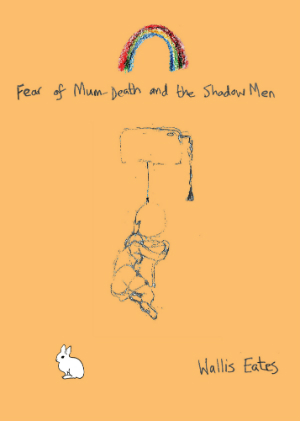 If you have ever cavalierly dismissed that personal slice-of-life strand of graphic narrative in a similar way then I would urge you to immediately immerse yourself in the comics of Wallis Eates. A finalist in the 2014 Myriad First Graphic Novel Competition for her work-in-progress Mumoirs, Eates has self-published a number of comics and zines over the last couple of years including You Chew I Spew and The Magic Quadrant, as well as being a contributor to anthologies like A Bit of Undigested Potato and Not a New Wave.
If you have ever cavalierly dismissed that personal slice-of-life strand of graphic narrative in a similar way then I would urge you to immediately immerse yourself in the comics of Wallis Eates. A finalist in the 2014 Myriad First Graphic Novel Competition for her work-in-progress Mumoirs, Eates has self-published a number of comics and zines over the last couple of years including You Chew I Spew and The Magic Quadrant, as well as being a contributor to anthologies like A Bit of Undigested Potato and Not a New Wave.
Fear of Mum-Death and the Shadow Men is the most comprehensive compilation of her comics to date and includes both new material and older stories. As I said earlier this week at Broken Frontier when I chose it as one of our Staff Picks it touches on recurring themes in Eates’s work: the reliability of memory, the complexities of the mother-daughter relationship and the often transitory, fleeting nature of our relationships with those lives that still significantly touch our own.
The 30-plus pages on offer here take work from Eates’s ongoing Mumoirs project; a graphic memoir that focuses on the creator’s childhood growing up in the 1980s as an only child in a single parent family. The intensity and intimacy of that familial relationship is reflected in one of the central motifs of Fear of Mum-Death: the young Wallis’s constant and inescapable terror of losing her mother.
Those fears are manifested throughout the short tales herein; scattered anxieties that permeate her childhood whether it’s what the orphaned daughter of departed family acquaintance “Basement Sue” represents to Wallis (in terms of a similar potential loss) or her mother’s monthly life insurance payments to ‘The Rainbow Man’ (below). Even something as everyday and inconsequential as her mother walking the dog (above) becomes an exercise in abject pessimistic anticipation in a cleverly crafted piece of visual metaphor that brilliantly emphasises her paranoid child’s eye perspective on events.
It’s that ability to draw us into her younger self’s world – on-page Wallis acting as both touchstone and avatar for our own childhood doubts – that ensures Fear of Mum-Death and the Shadow Men isn’t just an experience that we observe but one that we share. In that sense I am reminded of the zines of Simon Moreton. Both creators depict very personal moments in their respective lives yet a crucial, central element of the appeal and the pull of their work is that they engender an emotional response that we recognise and empathise with.
That reality of maternal mortality becomes more pronounced as the comic progresses, with her mother’s own often fragile mental state accentuating the atmosphere of apprehension and foreboding. These fractured accounts, as similar concerns are revisited from childhood to teenage years, underlines how ably Eates manipulates comics’ relationship with time to create a potent mini-history of unsettling youthful angst. There’s an awful irony as the central figure of refuge in her life also becomes her greatest source of insecurity. Be prepared for Fear of Mum-Death‘s final few pages. It’s one of the most delicately paced yet devastatingly powerful sequences I’ve read this year and it’s utterly heartbreaking in its raw and unforgettable honesty.
A collection like this, bringing together so much of what Wallis Eates does in one comprehensive package, was long overdue. It’s a showcase not just for her work in a thematic sense but also in a presentational one as well. Rarely will you see a creator displaying in just 30 pages so many of the narrative possibilities of the form and yet there’s something so distinctive about the book in terms of its voice. It has a crossover comics/zine vibe with comics sections melting into illustrated prose but there’s also something endearingly idiosyncratic about Eates’s playful toying with the audience in her role as narrator.
The unedited “crossings out”, the scrawled-in notes to the reader commenting (sometimes self-deprecatingly) on her own narratives, and the use of real artefacts from her early years like photos and drawings all stand out. They combine to give a feeling of actuality and authenticity to the proceedings that connect reader and artist together in ways that few creators could ever hope to.
Eates understands instinctively, too, when to let her imagery speak for itself with visual storytelling that relies less on exposition (the shocking revelation of an imagined malevolent entity haunting her childhood home for example) or when a verbose approach is more fitting, as in the reprinted sections from her Fleeting Faces zines with their wittily observed commentary on the frailty of human nature. Below is an excellent example of her control of the page; a dizzyingly frenetic evocation of compulsion that, through its intricate construction, traps the reader in the obsessive mindset of its protagonist.
The veracity of memory also plays a significant role here too, echoing Eates’s own comments in our two-part interview last year that “I do not want to present to the reader the idea that they are engaging with an actual universe – this is my mind, these are my memories, they can be fallible.” One of the most uncompromising strips in Fear of Mum-Death and the Shadow Men revolves around the accuracy of her remembrances of a visit from her grandfather, inviting us to think about the possible mutability of our own recollections.
It’s a story that poses fascinating questions about the reliability of our own personal histories in our mind’s eye and embodies the unflinching openness of its author. It’s thematically mirrored to a degree in the opening few pages that revisit one of Eates’s earliest homes, giving us a tour of its environs in geographical cameos that remind us that we remember in fragments and rarely as a consolidated whole.
Fear of Mum-Death and the Shadow Men is the perfect gateway into the sequential art and illustrated prose of this vital voice in UK autobiographical comics. We can only hope that this collection is the final step towards someone out there picking up Mumoirs because Wallis Eates continues to produce comics that speak to us all with their emotional immediacy and unyielding candour. This is work that doesn’t just deserve a wider audience, it’s owed one.
For more on Wallis Eates visit her site here and follow her on Twitter here. Fear of Mum-Death and the Shadow Men debuts today at the DIY Cultures Fair and is available from her online store priced £5.00.
For regular updates on all things small press follow Andy Oliver on Twitter here.






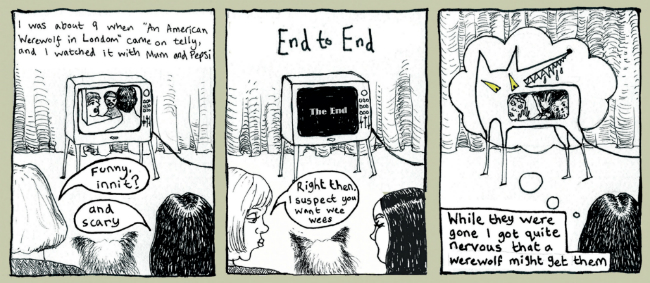
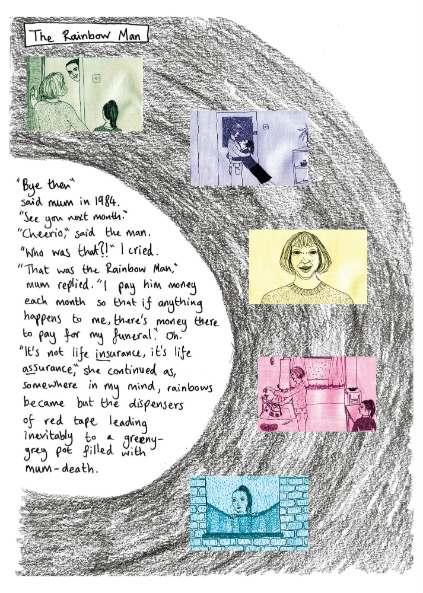
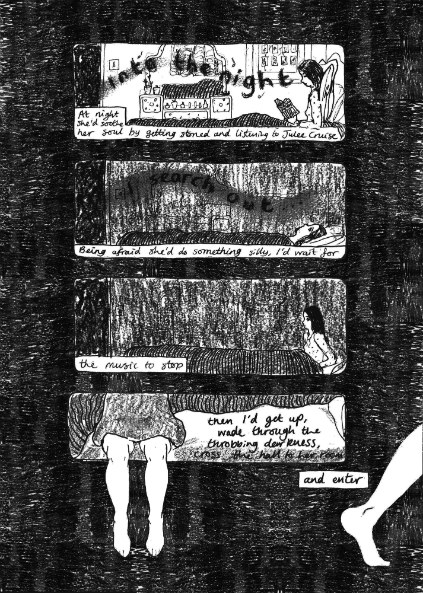
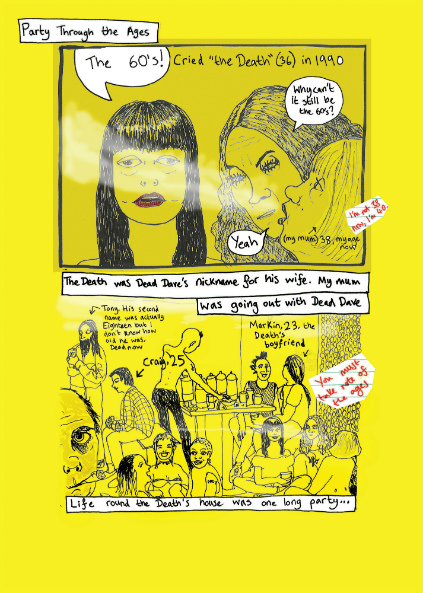
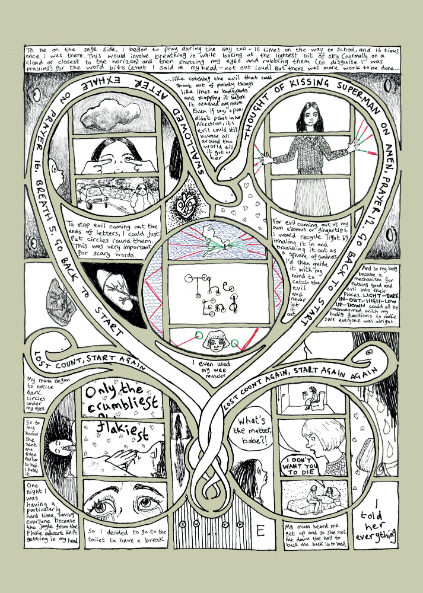


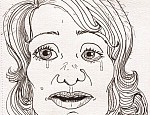
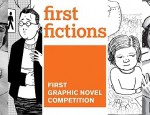
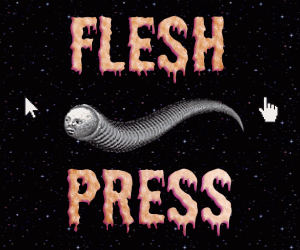





[…] A review by Andy Oliver can be read here. […]